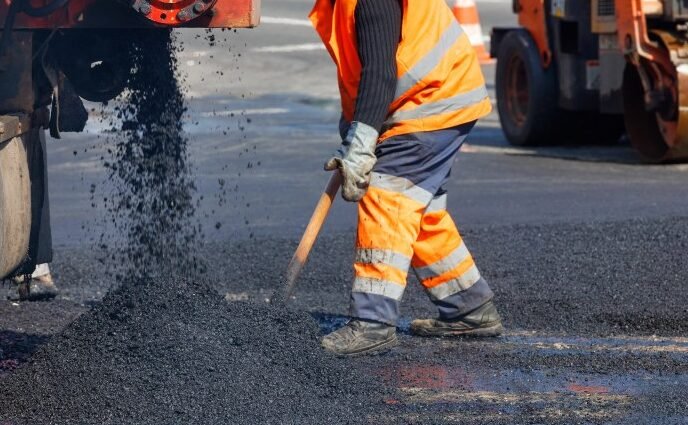Hidden Costs in Asphalt Projects

It is always exciting to start an asphalt project, which may include paving a driveway or constructing a parking lot, etc. Asphalt brings a fresh and clean look and improves functionality. But there are some challenges, like hidden costs in Asphalt Projects, which can sneak up and turn your budget upside down. But don’t worry; we will help you navigate these surprises and show how an asphalt calculator can be a friend for homeowners and businesses.
Table of Contents
ToggleWhy Hidden Costs Catch Many Off Guard
Most people focus on visible expenses like materials and labor when planning an asphalt project. But there are underlying costs that can derail your plans. I’ve experienced it firsthand while paving my driveway in Michigan. What seemed simple turned complicated when unexpected expenses started piling up.
Common Hidden Costs in Asphalt Projects
1. Site Preparation. Before the asphalt goes down, the ground must be properly prepared. It involves clearing debris, leveling the area, and soil testing. In colder climates like Canada, frost heaving can make site preparation more complicated and expensive.
2. Permits and Regulations. Most municipalities in the USA and Canada require permits for paving projects. These permits cost money and take time to obtain. For example, a city like Vancouver has specific guidelines for storm water management, adding to the complexity.
3. Drainage Installation. Asphalt surfaces need proper drainage systems to prevent water damage. Not adhering means setting yourself for costly repairs down the line. In areas prone to heavy rainfall, like Seattle, addressing drainage issues upfront is essential.
4. Material Waste. Ordering too much asphalt wastes money, while ordering too little causes delays. Balancing this is tricky, especially if you’re relying on guesswork.
5. Labor Overruns. Labor costs can skyrocket if your project runs into delays due to weather, equipment issues, or unforeseen complications. In snowy regions like New York or Quebec, weather alone can stretch timelines.
The Lifesaver: An Asphalt Calculator
You don’t have to face these challenges alone. An asphalt calculator can help you plan your project accurately which saves time, money, and stress.
What Is an Asphalt Calculator?
An asphalt calculator is a simple tool which estimates the amount of asphalt required. By putting in details, area dimensions, thickness, and asphalt cost per ton, you’ll get a precise estimate of materials and costs.
Benefits of Using an Asphalt Calculator
1. Accurate Material Estimates. Avoid overordering or running out of materials. An asphalt calculator ensures you order just the right amount.
2. Cost Transparency. Knowing your material requirements upfront helps you budget effectively. You’ll avoid surprises and stay in control of your spending.
3. Saves Time. Forget manual calculations. A calculator does the math for you, freeing up your time for other tasks.
4. Environmentally Friendly. Ordering the exact amount of asphalt minimizes waste, which is great for both your wallet and the planet.
How to Use an Asphalt Calculator
Using an asphalt calculator is straightforward:
Measure the length and width of the area to be paved.
Decide on the thickness of the asphalt layer (common options range from 2 to 6 inches).
Put these values into the calculator, along with the cost per ton of asphalt.
Many free tools are available online. For example, check out the Asphalt Calculator Online for a reliable option.
My Experience With an Asphalt Calculator
During a parking lot project in Chicago a few years ago, I was initially worried about the logistics. A contractor friend suggested calculating through an asphalt calculator, and it changed everything. I got accurate estimates, which helped me budgeting properly, and also ensured ordering the right amount of materials. Best of all, it eliminated the guesswork.


Tips to Avoid Hidden Costs
Using an asphalt calculator is just one part of the puzzle. Here are additional tips to keep your project running smoothly:
1. Research Local Regulations
Each city has unique paving requirements. In the USA, websites like USA.gov offer information on permits. In Canada, check local municipal websites for guidance.
2. Choose Reputable Contractors
Look for professionals with good reviews and ask for references. Paying a bit more for experienced contractors can save you from costly mistakes later.
3. Account for Weather
Weather conditions play an crucial role in such projects. Plan your project during favorable conditions to avoid delays and additional costs. For instance, summer months in the Midwest are ideal for asphalt paving.
4. Plan for Unexpected Costs
Set aside 10-15% of your budget for contingencies. Whether it’s a sudden need for additional materials or unforeseen complications, having a cushion can save you from stress.
FAQs
1. How much does asphalt cost per ton in the USA and Canada?
The cost varies but normally ranges from $100 to $150 per ton in the USA and CAD 120 to CAD 200 per ton in Canada. Prices depend on location and market conditions.
2. Can I pave over old asphalt?
Yes, but only if the existing surface is stable. A professional can assess whether it’s suitable for paving over.
3. What’s the ideal thickness for asphalt?
For residential driveways, 2-3 inches is common. Parking lots and high-traffic areas may need 4-6 inches.
4. Are asphalt calculators accurate?
They’re highly accurate when you input the correct measurements. However, it’s always a good idea to double-check with a contractor.
5. Where can I find free asphalt calculators?
Many free options are available online. For example, AsphaltCalulatoronline offers a user-friendly calculator.
Conclusion: Plan Smart and Save Money
Asphalt projects can be costly, but with the right tools and planning, you can avoid hidden expenses. An asphalt calculator is a must-have for accurate estimates, better budgeting, and reducing waste.
Key Takeaways:
Hidden costs like permits, site preparation, and drainage can add up quickly.
An asphalt calculator helps you avoid overordering and wasting materials.
Research local regulations and hire reputable contractors to avoid unexpected issues.
Plan your project during favorable weather and budget for contingencies.
By considering these steps, one can ensure a smoother project experience. Happy paving!

